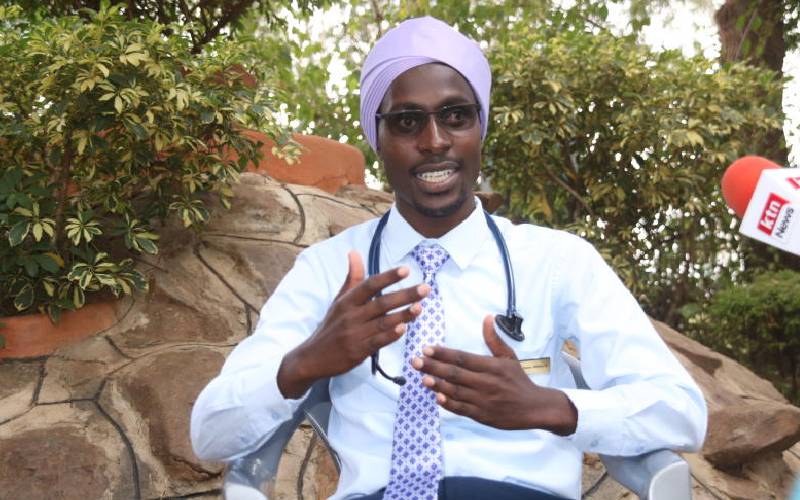×
The Standard e-Paper
Join Thousands Daily

Dr Isaac Gitiha during an interview at Our lady of Lourdes Mwea Hospital in Mwea, Kirinyaga county on March 24, 2022. [David Gichuru,Standard]
At a glance, Dr Isaac Gitiha doesn't strike you as a witty, fun-loving young man who is trying to build a career as a medical doctor, with his eyes trained on orthopaedic surgery.